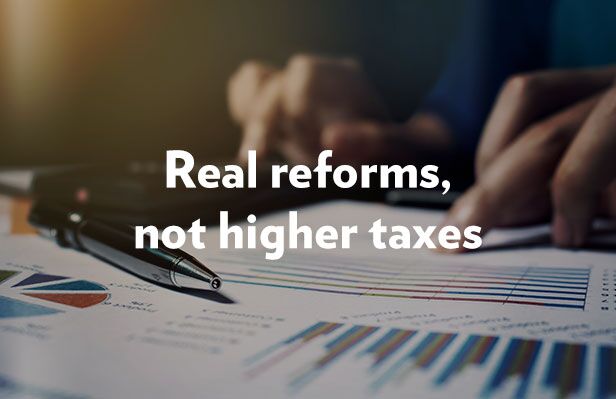Media

Four Game Changing Welfare Reforms
The 2017-18 spending plan is now law, but officials still must find a way to pay for it. The latest version of the human services code bill includes a host of welfare reforms that curb unsustainable growth and create a safety net for those most in need – helping more people escape poverty.
1. Medicaid Work Requirement Waiver
At least six states have already submitted waivers to the federal government seeking permission to require the able-bodied to work in exchange for taxpayer-funded medical insurance. Meaningful work requirements for healthy individuals create a pathway to independence. When Kansas and Maine strengthened work requirements in their Food Stamp program, enrollment dropped by 75 and 80 percent, respectively. At the same time, those leaving the program saw their incomes more than double.
2. Cost-Saving Waiver to Address Cost Overruns
Year after year Pennsylvania faces Medicaid cost overruns, resulting in substantial supplemental appropriations. In fact, 2016-17’s $400 million in supplemental appropriations came entirely from human services and accounted for a quarter of the budget deficit. Requiring DHS (Department of Human Services) to seek a waiver to reduce the financial burden of Medicaid prior to submitting a supplemental appropriation request provides much needed accountability. In other words, it discourages superfluous spending and empowers DHS to develop solutions to unavoidable cost overruns.
3. Seek Premiums for Well-Off Families Utilizing Medicaid
Without significant changes, Medicaid risks serious provider and benefit cuts. The program is projected to grow 6.7 percent a year while the economy grows at just 4 percent. Reducing benefits would be especially painful to families with a disabled child who requires specialized medical care. Instead of cutting services for everyone, this provision instructs Pennsylvania to seek a waiver that requires premium payments from families with an income over 1,000% of the federal poverty level. For a family of four the cut-off is $246,000. This is a common-sense way to protect care for disabled children.
4. Strengthening Fraud and Abuse Protections
The human services code also requires DHS to contract-out evaluations of programs that identify and prevent fraud, waste, and abuse in Medicaid, Food Stamps, and TANF or cash assistance. Participants will have six weeks to identify potentially fraudulent activity.
Welfare reforms that promote work and a pathway to independence should be part of any plan to responsibly balance the budget without tax hikes.